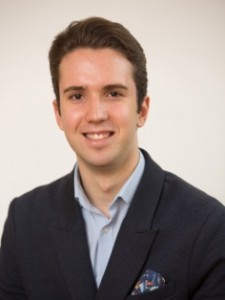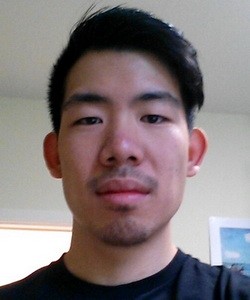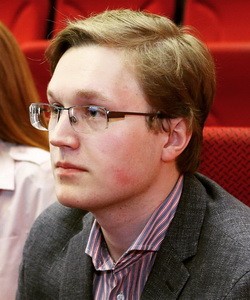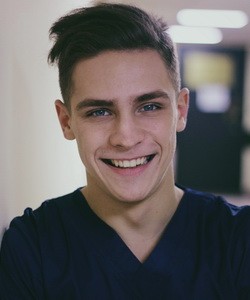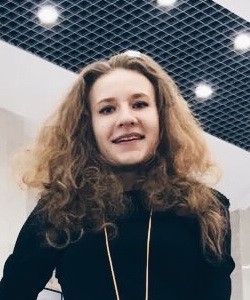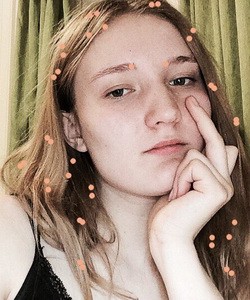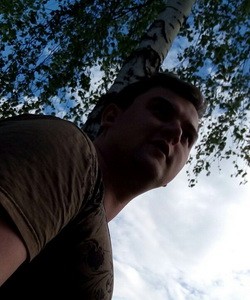Biomedical Summit:
Scientific and Technological Cooperation
in the Healthcare Industry
(SIBS-2024)
Sechenov University
Moscow, Russia

SIBS: Students Perspective
Dear students, residents, graduate students!
Are you interested in biomedicine?
Sign up for www.sibs2017.confreg.org
Send us your photo and 4-5 sentences on any of the topics:
- If you become the head of an international organization which aims to fight cancer, what will your first actions be like?
- If you get funding for investigating the molecular markers of any disease, which disease and molecules will you choose?
- Are tissue engineering and regenerative medicine capable to fully replace organ transplantation in the nearest 10-20 years?
And get a chance to share your opinion with Nobel laureates!
Best regards,
Nikita Sushentsev
Coordinator of the Centre for Scientific Career,
Sechenov University
Dear colleagues,
On behalf of SIBS 2017 Organizing Committee please let me welcome you at SIBS: Students Perspective.
Our mentors often say that the brightest ideas which lead to breakthroughs in science usually come from the youngsters. That is why the Organizing Committee decided to pay special attention to participation of students and young researchers in SIBS 2017.
Here you can read the most interesting opinions on some of the most challenging issues in biomedicine.
See you at SIBS 2017!
SIBS: students perspective
Are tissue engineering and regenerative medicine capable to fully replace organ transplantation in the nearest 10-20 years?
Tissue engineering has taken a great leap forward in recent years evidenced by the advent of 3D printing in the ‘90s which has already taken a strong foothold in maxillofacial surgical reconstruction. Read more
3D printing is also now increasing in use in other specialities for specific tools but also in the field Urology for planning robotic surgical. It is a hope that one day that human tissue could be printed in a similar manner to the artificial models. More recently, researchers at the Worcester Polytechnic Institute have cultured functional cardiac tissue onto a spinach leaf scaffold and hopefully their success can be extrapolated on a larger scale.
Research into organ transplantation is also progressing with Yamanaka Induced Pluripotency Stem Cells opening a new window in stem cell research which suggests a future possibility of autologous organ transplants. In addition, xenografts have always looked to be an interesting approach, however progress in that field has stagnated in recent years.
All of the innovations discussed, and many more, hold great promise. However I believe it would be naïve to think that such developments could entirely replace conventional allogeneic transplants within the next 10-20 years. This is due to the meticulous time consuming nature of trials, in addition to the highly expensive cost of new technology - rendering it unaffordable for wide scale for many successive years (evidenced by Human Genome Sequencing). Despite this, this does not mean we cannot be optimistic.
If you get funding for investigating the molecular markers of any disease, which disease and molecules will you choose?
If my project is funded, the molecular markers of neurodegenerative diseases (Parkinson's disease, Alzheimer's disease, etc.) will be chosen because the WHO forecast for the next decade will be the first in terms of costs for treatment and rehabilitation. Read more
I see the future of diagnostics of these diseases in ELISA of olfactory epithelium samples to identify some forms of beta-amyloid and neuroapoptotic factors. In the long term, this can be one of the most cheap and safe methods of detecting neurodegenerative diseases in the early stages.
If you become the head of an international organization which aims to fight cancer, what will your first actions be like?
There are a lot of opportunites of cancer fighting nowadays. For instance we can organize science-popular lectures for people, create new methods of cancer treatment (detecting new oncomakrers, genetic technologies - repression of genes-inhibitors of apoptosis, activation the reparation of DNA system). Read more
Screening of the population also have useful effect. Because knowledge of population health status may detect cancer in the early stages.
If you become the head of an international organization which aims to fight cancer, what will your first actions be like?
I think, the best medicine is the preventive medicine, as N.I.Pirogov said. It's absolutely necessary to advance the prevention of cancer and the early diagnostics all over the world. Read more
For example, my first actions will concern not only qualitative informing the population about risk factors and means of reducing them,but also improving health screening which should be done every year for all people. One of the main problem: tumor causes no symptoms during early cancergenesis and the first signs appear very late , when the treatment of cancer becomes difficult and the death-rate is very high. Cancer that's diagnosed at an early stage, before it's had the chance to get too big or spread is more likely to be treated successfully. Therefore people with high risk of developing cancer should thoroughly be examined by doctors and in case of cancergenesis become immediate and effective treatment. Health care of every person will help to win the fight between disease and doctors, I am sure!
If you become the head of an international organization which aims to fight cancer, what will your first actions be like?
Today cancer is one of the most frightening diagnosis, because it strikes unexpectingly and, although finding cure has been a priority for researchers for decades now, still, it remains awfully hard to guarantee that tumor will respond to the therapy. Read more
If I became the head of an international organization which aims to fight cancer, I would try to make presymtomatic diagnosis more common. In my opinion, there should be tests, that indicate the presence of oncomarkers or oncoantigens in patients, so that doctors could spot the pathology at very early stage. All in all, I think that preventing a disease is always more effective, than treating one.
If you get funding for investigating the molecular markers of any disease, which disease and molecules will you choose?
If I received funding, the object of study would certainly be cancer. The problem of early diagnosis of this heterogeneous disease is very urgent and we are still far from solving it. Read more
This is especially true for solid tumours that are asymptomatic in the early stages. As markers for diagnostics, I would suggest a complex approach, including the validation of both genetic and proteomic targets. Along with the study of mutations, SNP, I would also evaluate the now fashionable micro-RNA, would return to well-forgotten serological markers, proteins, start looking for a new combination, plus measure the levels of antibodies to glycans. This approach, using different techniques, sequencing, mass spectrometry, arrays for the detection of different classes of compounds, will most fully reflect the concept of a personalised medicine, especially relevant for early diagnosis.
Contact us
Participation in the Summit
Yulia Bikulova, Ekaterina Markova
+7 (499) 390-34-38, +7 (926) 848-23-58
e-mail: sechenov-sibs@confreg.org
Participation in the exhibition:
Daria Andreeva
Tel.: +7 (926) 891 76 23
E-mail: sibs.summit@yandex.ru

